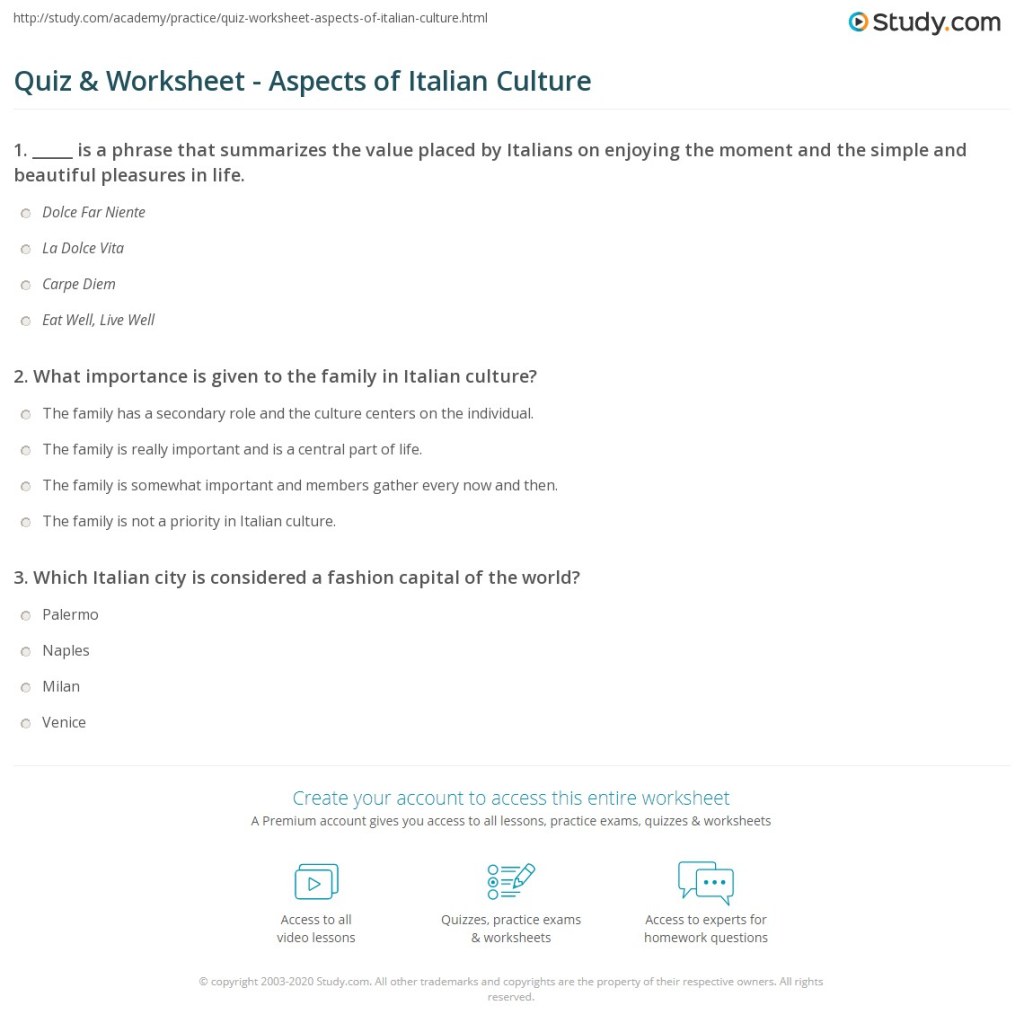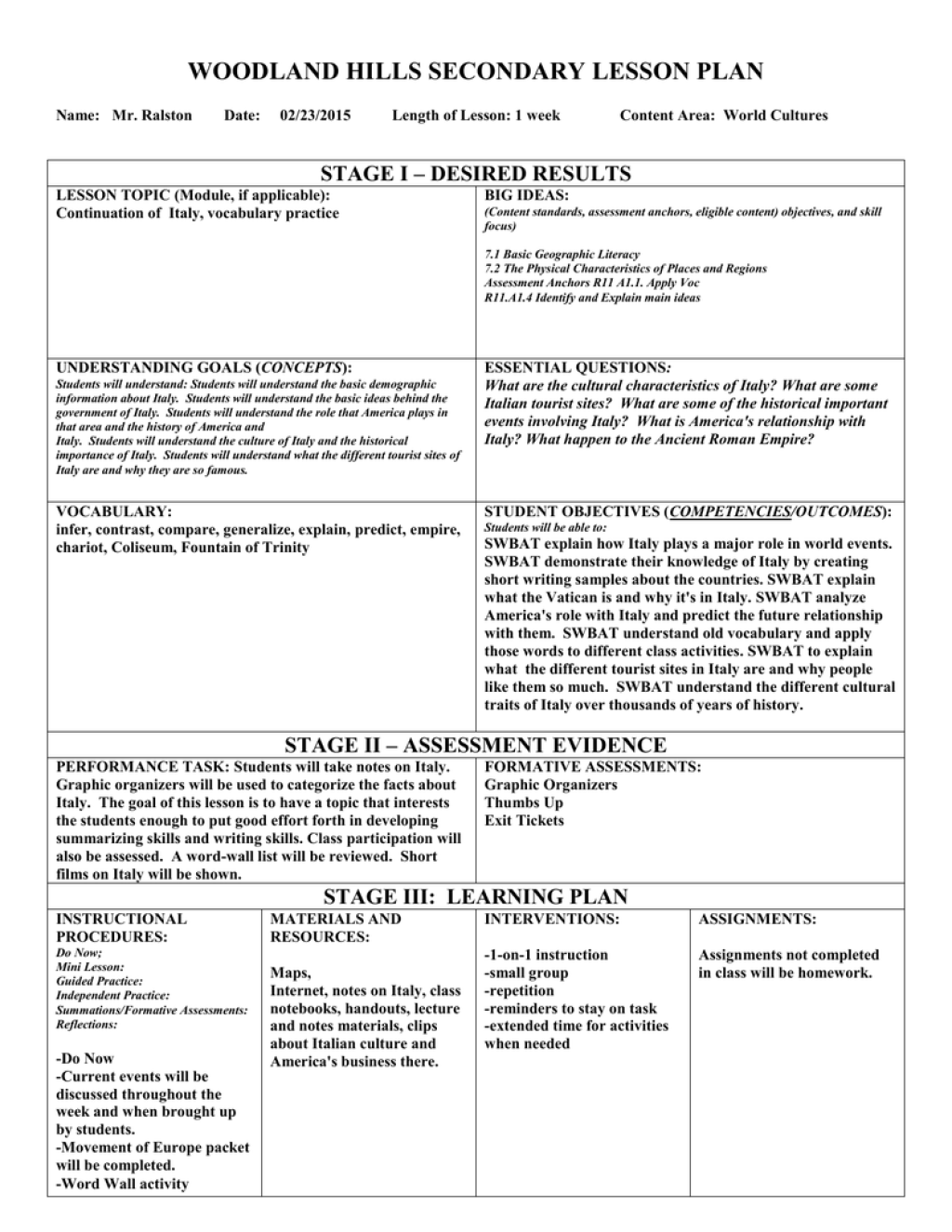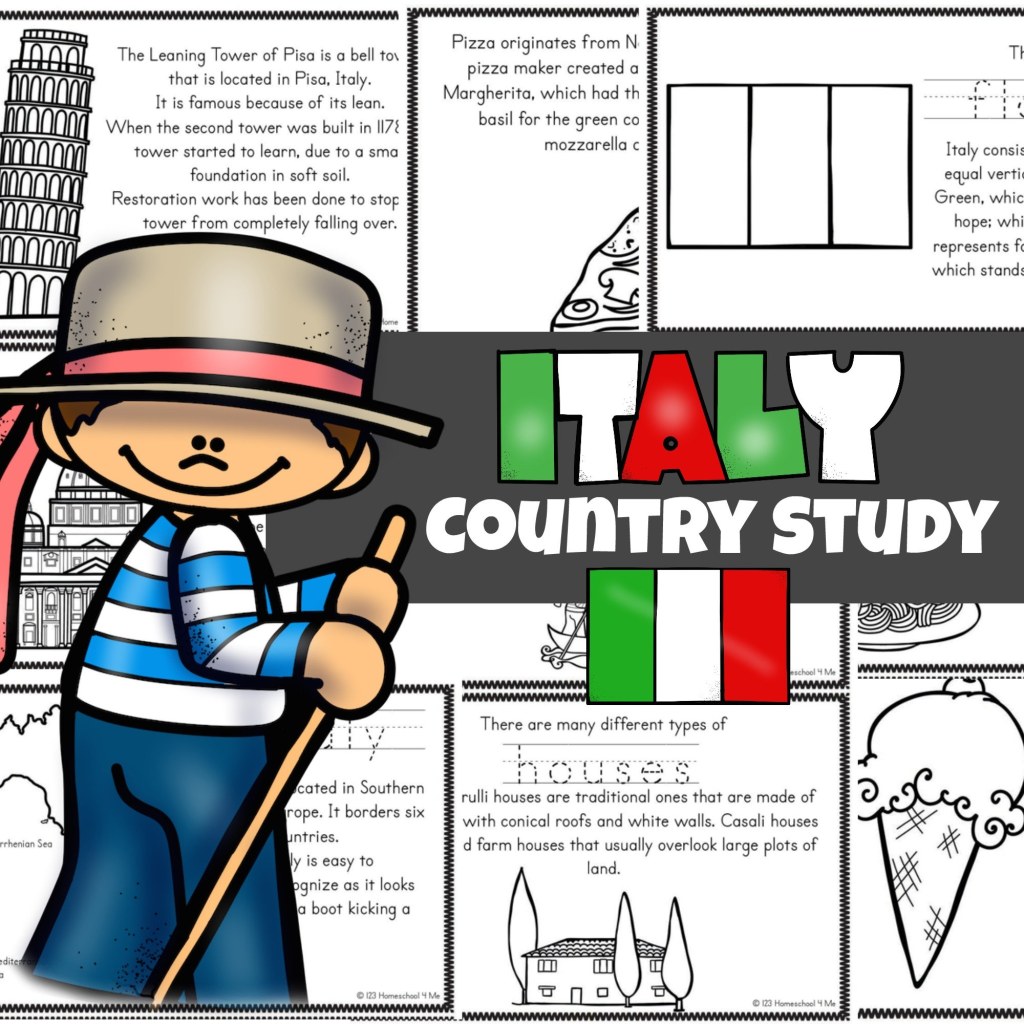Unlock The Richness Of Italian Culture With Our Comprehensive Lesson Plans!
Italian Culture Lesson Plans: A Comprehensive Guide
Greetings, Readers! Today, we are going to delve into the fascinating world of Italian culture lesson plans. Italy is known for its rich history, vibrant art, delicious cuisine, and passionate people. Incorporating these elements into your lesson plans can ignite a sense of curiosity and excitement among your students, while also providing them with valuable knowledge about a different culture. In this article, we will provide you with a comprehensive guide to creating Italian culture lesson plans that are both informative and engaging. So, let’s embark on this cultural journey together!
Introduction
Italian culture lesson plans are educational tools designed to introduce students to various aspects of Italian culture, including history, art, language, cuisine, and traditions. These lesson plans are not only informative but also interactive and engaging, as they encourage students to actively participate in activities that showcase the uniqueness of Italian culture. By incorporating Italian culture lesson plans into your curriculum, you can broaden your students’ horizons, foster cultural understanding, and inspire a lifelong love for learning.
3 Picture Gallery: Unlock The Richness Of Italian Culture With Our Comprehensive Lesson Plans!



In this article, we will explore the different components of Italian culture lesson plans, including what they entail, who can benefit from them, when they can be implemented, where to find valuable resources, why they are important, and how to create effective lesson plans that captivate students’ interest. So, let’s begin our exploration of Italian culture lesson plans!
What are Italian Culture Lesson Plans?
Italian culture lesson plans are educational resources that aim to introduce students to the diverse aspects of Italian culture. These lesson plans typically incorporate a range of activities, such as discussions, presentations, hands-on projects, and interactive games, to engage students in a meaningful and enjoyable learning experience. By exploring various aspects of Italian culture, students develop a deeper understanding and appreciation for Italy’s rich heritage.
Who Can Benefit from Italian Culture Lesson Plans?
Italian culture lesson plans can benefit a wide range of individuals, including teachers, students, and even parents. Teachers can utilize these lesson plans to enhance their curriculum and make their teaching more dynamic and interactive. Students can gain valuable knowledge about Italian culture, expand their worldview, and develop cross-cultural competence. Parents can also use these lesson plans to engage their children in educational activities that go beyond traditional textbooks, fostering a love for learning and cultural appreciation.
When to Implement Italian Culture Lesson Plans?

Image Source: study.com
Italian culture lesson plans can be implemented throughout the academic year, depending on your curriculum and the specific topics you wish to cover. These lesson plans can be integrated into social studies, history, language arts, or even art classes. They can also be used to enhance cultural awareness during special occasions, such as Italian Heritage Month or cultural events. By incorporating Italian culture lesson plans strategically into your teaching schedule, you can create a well-rounded learning experience for your students.
Where to Find Valuable Resources for Italian Culture Lesson Plans?
A plethora of resources is available online and in libraries to assist you in creating Italian culture lesson plans. Websites, such as educational platforms, cultural organizations, and museums, offer a wealth of information, activities, and multimedia content that can be incorporated into your lesson plans. Additionally, books, documentaries, films, and songs related to Italian culture can serve as valuable resources to supplement your teaching materials. The key is to explore a variety of sources to ensure that your lesson plans are diverse, engaging, and up-to-date.
Why Are Italian Culture Lesson Plans Important?
Italian culture lesson plans are essential for fostering cultural understanding, promoting diversity, and nurturing global citizens. As our world becomes increasingly interconnected, it is crucial for students to develop cross-cultural competence and appreciate the richness of different cultures. Italian culture lesson plans provide a gateway for students to explore a culture that is renowned for its contributions to art, history, literature, and cuisine. By immersing themselves in Italian culture, students can gain a broader perspective and develop a more inclusive worldview.
How to Create Effective Italian Culture Lesson Plans?
Creating effective Italian culture lesson plans requires careful planning and consideration of your students’ needs and interests. Here are some tips to help you create engaging and informative lesson plans:
1. Set clear objectives:

Image Source: studylib.net
Define what you want your students to achieve through these lesson plans. Are you aiming to develop their language skills, introduce them to famous Italian artists, or teach them traditional Italian recipes? Clearly outlining your objectives will guide your planning process.
2. Incorporate interactive activities:
Engage your students through hands-on activities, group discussions, role-plays, or multimedia presentations. This will ensure active participation and make the learning experience more enjoyable.
3. Use authentic resources:
Include authentic resources, such as Italian songs, poems, artworks, or videos, to expose your students to real examples of Italian culture. This will enhance their learning experience and provide them with a deeper understanding of Italian traditions.
4. Encourage creativity:

Image Source: 123homeschool4me.com
Allow your students to express their creativity by incorporating art, crafts, or storytelling into the lesson plans. This will enable them to actively engage with the material and make personal connections.
5. Assess learning outcomes:
Include assessment methods, such as quizzes, projects, or presentations, to measure your students’ understanding and knowledge retention. This will help you determine the effectiveness of your lesson plans and make any necessary adjustments.
Advantages and Disadvantages of Italian Culture Lesson Plans
Italian culture lesson plans offer several advantages for both teachers and students. Let’s explore some of the benefits as well as the potential challenges:
Advantages:
1. Cultural appreciation: Italian culture lesson plans promote cultural appreciation and help students develop respect for different traditions and ways of life.
2. Language skills: Incorporating Italian language activities into the lesson plans can enhance students’ language skills and foster a curiosity for learning new languages.
3. Cross-cultural competence: By exploring Italian culture, students develop cross-cultural competence, which is essential in today’s globalized world.
4. Creativity and critical thinking: Hands-on activities and interactive discussions encourage students to think critically and creatively, enhancing their problem-solving skills.
5. Engagement and motivation: Italian culture lesson plans provide a refreshing change from traditional teaching methods, making learning more enjoyable and motivating for students.
Disadvantages:
1. Time constraints: It can be challenging to incorporate extensive cultural content into an already packed curriculum and limited class time.
2. Resource availability: Finding authentic and up-to-date resources that align with your lesson plans may require additional effort and research.
3. Language barriers: Teaching Italian culture may present challenges if students are not familiar with the language. However, this can also be an opportunity to introduce them to a new language.
4. Sensitivity to cultural differences: It is essential to approach cultural topics with sensitivity and respect, ensuring that stereotypes or biases are not perpetuated.
5. Assessment difficulties: Assessing students’ understanding of cultural concepts can be challenging, as it often requires subjective evaluation.
Frequently Asked Questions (FAQs)
1. Are Italian culture lesson plans suitable for all age groups?
Italian culture lesson plans can be adapted to suit various age groups, from elementary school to high school. The content and activities can be adjusted to align with the students’ developmental levels and learning abilities.
2. Can Italian culture lesson plans be integrated into other subjects?
Absolutely! Italian culture lesson plans can be integrated into various subjects, such as social studies, history, language arts, geography, and even culinary arts. They provide a multidisciplinary approach to learning.
3. How can I make Italian culture lesson plans interactive for remote learning?
For remote learning, you can utilize online platforms, video conferencing tools, multimedia presentations, and virtual tours to create interactive and engaging Italian culture lessons. Encourage students to participate actively through discussions, group projects, and online quizzes.
4. Are there any scholarships or exchange programs related to Italian culture?
Yes, there are various scholarships, grants, and exchange programs available for students interested in Italian culture. Research local and international opportunities, such as language immersion programs, cultural exchanges, or study abroad scholarships.
5. Can Italian culture lesson plans be adapted for non-Italian heritage students?
Italian culture lesson plans can be adapted for students of any heritage. The goal is to foster cultural understanding and appreciation, regardless of the students’ background. By exploring different cultures, students develop empathy and a broader perspective.
Conclusion
In conclusion, Italian culture lesson plans offer a unique and enriching educational experience for both teachers and students. By incorporating various aspects of Italian culture into your curriculum, you can create a vibrant and inclusive learning environment that cultivates cultural appreciation, language skills, creativity, and critical thinking. While there may be challenges in implementing these lesson plans, the benefits far outweigh them. So, let’s embark on this cultural journey together and inspire our students to become global citizens with a deep appreciation for Italian culture and beyond!
Final Remarks
Creating Italian culture lesson plans requires careful consideration, research, and adaptability. It is crucial to approach cultural topics with sensitivity, respect, and authenticity. Remember, cultural understanding is a lifelong journey, and by incorporating Italian culture into our classrooms, we are fostering a love for learning, diversity, and global citizenship. So, let’s seize the opportunity to ignite curiosity, broaden perspectives, and celebrate the richness of Italian culture through engaging lesson plans. Buon viaggio!
This post topic: Italian Art



